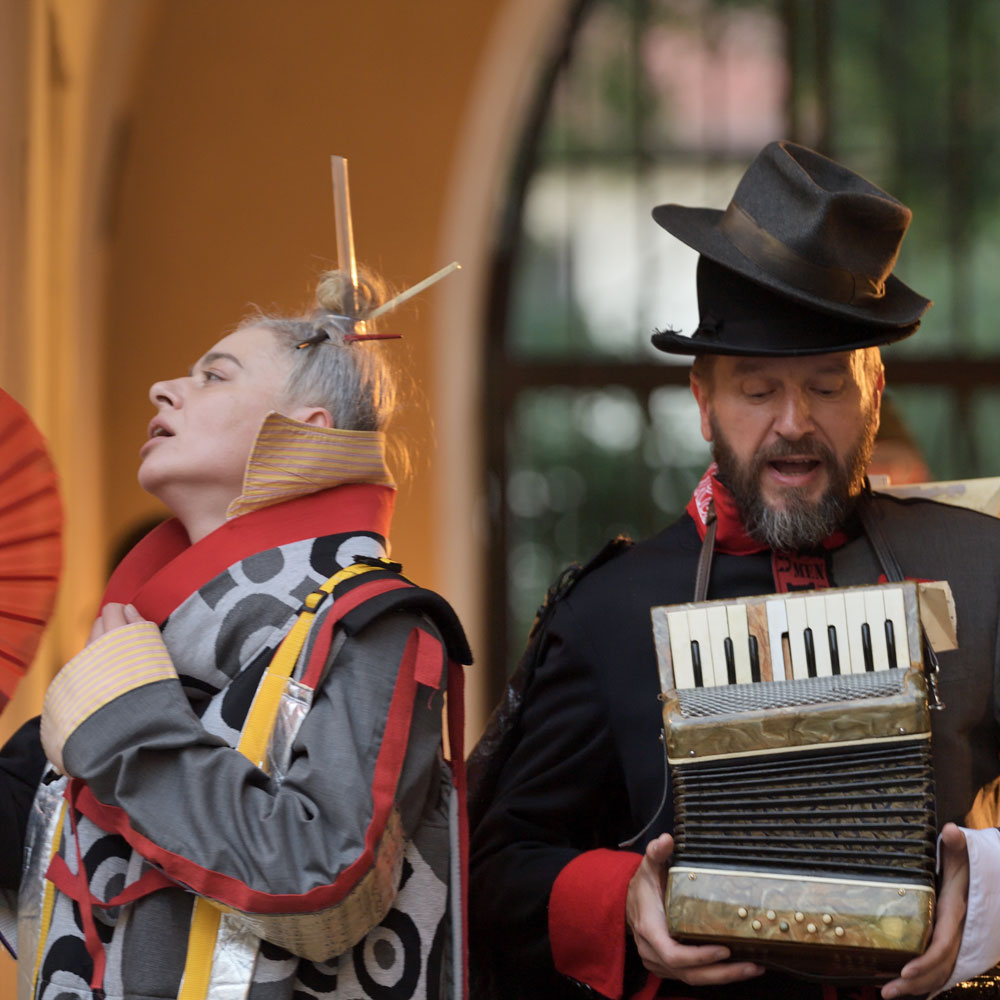Prokofiev died today | performed in Polish
6.09 | 19.00 | Kraków, The Archeological Museum (courtyard), 3 Senacka Street | admission with free entrance cards

On the 5th of March 1953, the date of both Sergei Prokofiev’s and Joseph Stalin’s death, Dmitri Shostakovich is going out of his way to buy some flowers for the great composer’s funeral. The task proves to be extremely hard as all the bouquets available in the USSR have been reserved for the final farewell ceremony of the dead Soviet dictator. This absurd situation is the starting point of the performance which presents the dramatic condition of an artist living and working in the regime of a totalitarian system.
The production, however, is in fact dedicated mainly to the works of Prokofiev and Shostakovich, as their music, played from recordings, performed on interesting instruments and sung and danced by the actors (also on roller skates!), becomes the main highlight of the show.
Teatr Mumerus | Poland
The Mumerus Theatre Association, established in 1999 and ever since chaired by Wiesław Hołdys, is mainly focused on new, venturesome and risky projects. It has staged over 20 productions inspired by non-dramatic sources, which were presented in Poland and at international festivals in Austria, The Czech Republic, Denmark, France, Germany, Lithuania, Portugal, Russia and Ukraine. The Association has also been involved in international educational programmes. For its productions and achievements the company has won a number of Polish and international awards.
script:
Monika Milewska
direction and space design:
Wiesław Hołdys
music selection:
Michał Braszak
costumes:
Dorota Morawetz
cooperation:
Agnieszka Dziedzic, Beata Morsztyn, Maria Śmiłek
performers:
Ewa Breguła, Agnieszka Dziedzic (voice), Anna Lenczewska, Mateusz Dewera, Jan Mancewicz, Jacek Milczanowski, Robert Żurek
musicians:
Alicja Margolin, Michał Braszak, Michał Peiker
premiere:
20.07.2019, Kraków
duration:
90’
(…) The actors’ concepts of the characters they play are also a mystery. It can be felt in every sound, word and gesture of the piece which, thanks to its lack of literality encourages viewers to see it again.
Paulina Pacyga, Dziennik Teatralny Kraków
A world created thanks to music (…) Hołdys, and let’s praise him for that, has quite a specific taste and no fears of challenges.
Justyna Nowicka, Radio Kraków
In an intelligent way Hołdys presents the absurdity of a situation in which artists get trapped when political authorities want to have art under their full control.







